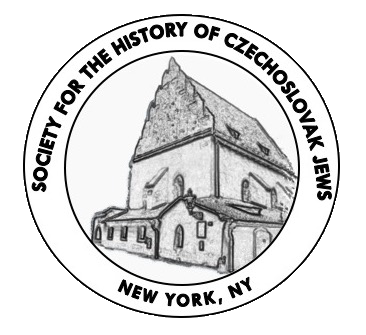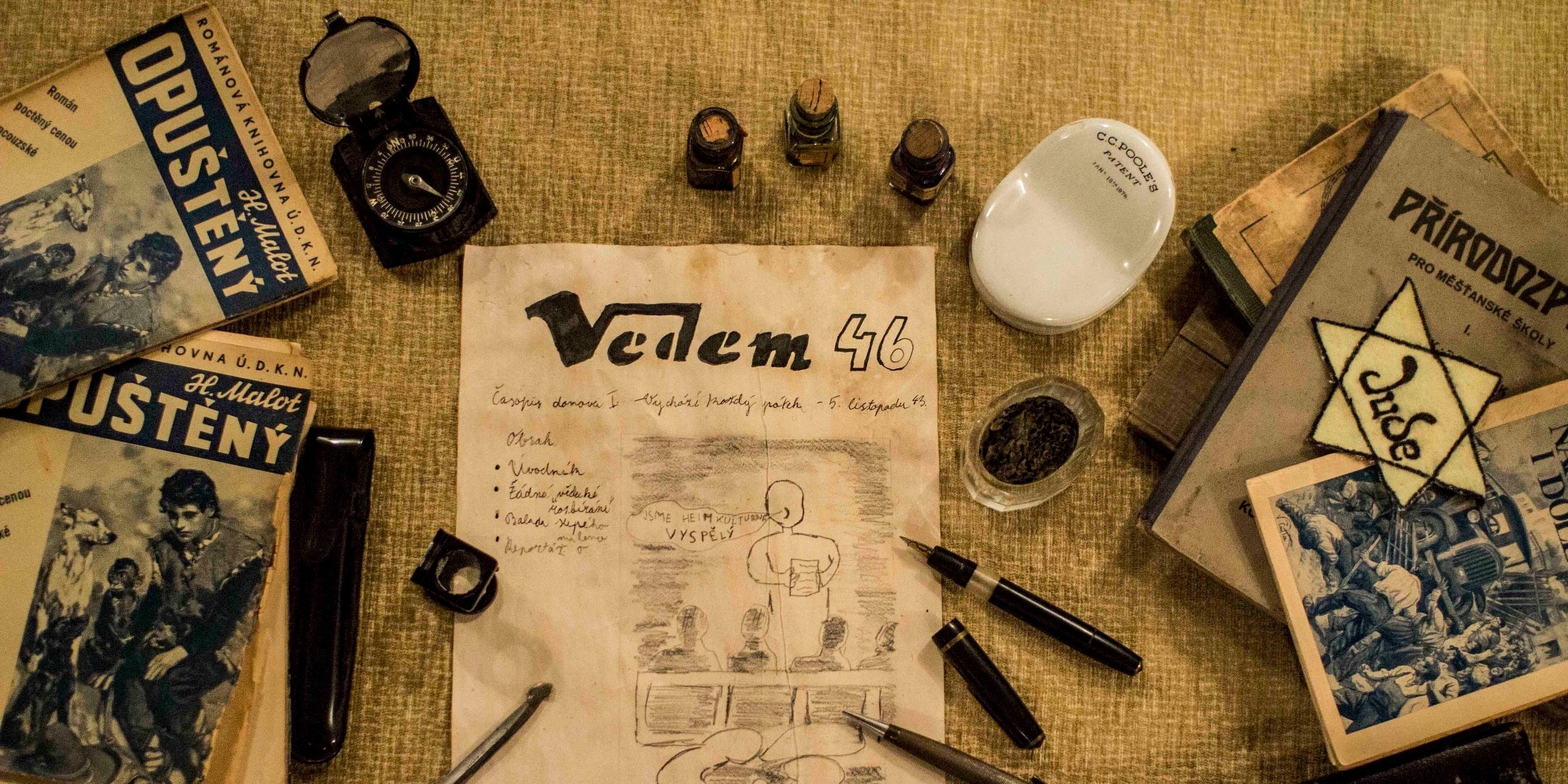
Events

Distant Journey, 1948, Alfréd Radok —Introduction by Tereza Czesany Dvořáková
A propagandistic documentary sequence introduces the audience to one of the most impressive Czech films of the post-war era. The main characters are a young Jewish doctor, Hana, and her "Aryan" fiancé Toník. The tragedy of the Kaufmanns, Hana's ordinary middle-class Prague family, and as well as of their friends, unfolds with a relentless rhythm. Although the film is not historically descriptive, it very accurately reconstructs specific events connected with the persecution of the Jewish population in the last months before the Nazi occupation and during the so-called Protectorate of Bohemia and Moravia.
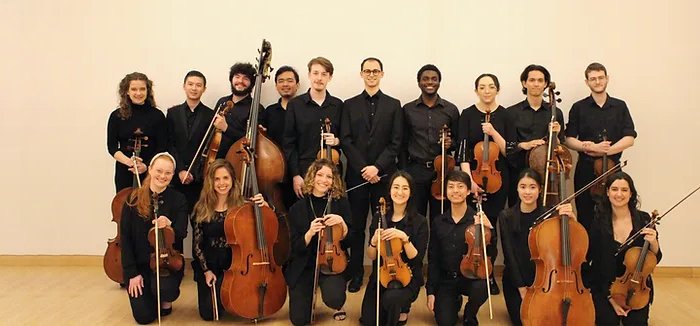
underStaffed presents: Musical Wonders by Czechoslovak Jews
Come experience the result of two distinct friendships which weave Bohemian music into the fabric of western classical music in a concert presented by a musical ensemble underStaffed. The program begins with the witty Esquisses de Jazz by Czech-Jewish composer Erwin Schulhoff paired with his friend Alban Berg’s stirring work for string orchestra Lyric Suite. After the intermission, the ensemble will travel back in time and play the majestic Ouverture a 7 concertanti by Czech Baroque composer Jan Dismas Zelenka as well as his contemporary Johann Sebastian Bach’s Brandenburg Concerto #3.
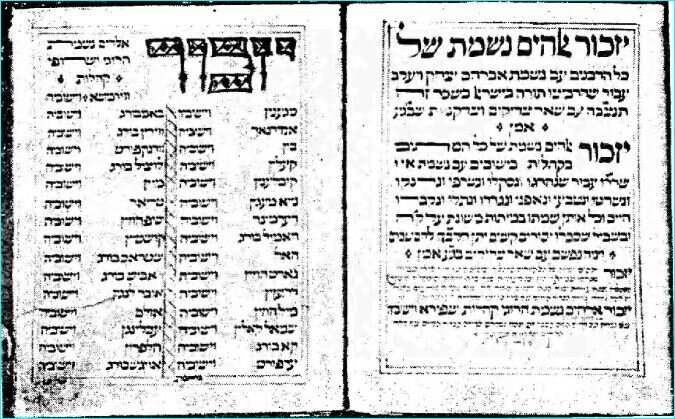
Annual Memorial Service for the Czechoslovak Jewish Victims of Nazism (via Zoom)
Czechoslovak Jewish Victims of Nazism
ONLINE via Zoom
Sunday, March 16, 3 - 4:30 pm ET, 8 - 9:30 pm CET

Dita Saxová, 1967, Antonín Moskalyk. Introduction by Irena Kovarova
The story of Dita Saxová takes place in a boarding school for orphaned Jewish girls a few years after WWII. As Dita explores relationships with men, she listens to advice of her teachers and elders. Everyone is puzzled by this gorgeous young woman. Shot in the late 1960s when filmmakers in Czechoslovakia had the relative freedom to address even the darkest philosophical issues

The Golem: How He Came into the World, 1920, Paul Wegener Introduction by Irena Kovarova
The legend of the Golem of Prague had brought the story of Jews in Central Europe to the mainstream audience through popular films and literature. Paul Wegener, a German stage actor come filmmaker and screen actor, was the first to bring this character to cinema. His three (!) horror films featuring the Golem – all extremely successful, yet only the last one has survived until today in its entirety – portray the ‘monster’ with human characteristics, quite different from many later versions.

An Evolving Dance Around Joy, Tragedy and Revival: The Jewish Musical Experience in the Czech Lands. Talk by Professor Michael Beckerman
Some time ago I was asked to write a chapter for a History of Music in the Czech Lands on “Jewishness and Music in the Czech Lands.” It was only after accepting this assignment that I realized I had no idea of what these terms meant. I had written a good deal about Czechness and music, concluding, rather problematically, that such a thing was, like Schrödinger’s cat, both real and unreal. Adding Jewishness into the mix made the situation even more muddled.

Rabbis, Philosophers, and Reformers: The Jewish Community of Prague in the Intellectual Landscape of Late Medieval Bohemia: Talk by Milan Žonca
Almost nine decades ago, Ruth Kestenberg (Gladstein) suggested that the Hussitereform movement, which emerged in Bohemia at the turn of the fifteenth century, drew inspiration from the local Jewish community’s thriving religious life. The possibility of intellectual and religious contacts between the Jews and the Hussites has been since examined by several scholars.

Elevating Melodies: Music and Jewish Mysticism in the Czech Lands and Beyond. Talk by Dr. Gordon Dale
The Czech lands have been home to some of Jewish mysticism’s greatest thinkers. Several of these scholars have emphasized the importance of melody in the pursuit of connecting with the Divine, and some have even composed their own sacred melodies.
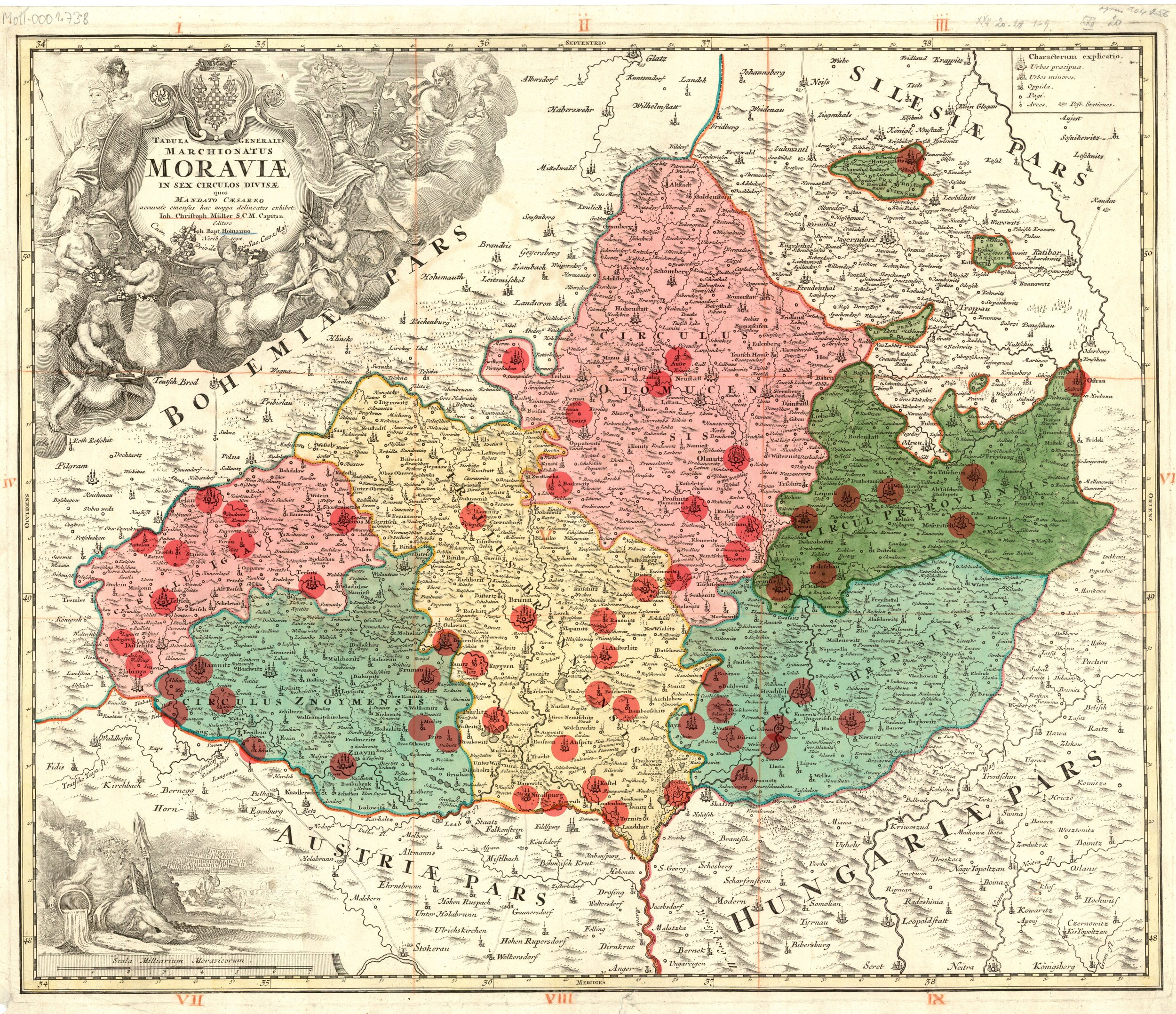
Moravia as a Melting Pot of European Jews
The Mehrin in cooperation with the Society for the History of Czechoslovak Jews and the Consulate General of the Czech Republic in New York invites you to the lecture dedicated to the topic of Moravia and Silesia as a unique area of the development of Jewish history. It is a place that gave the foundation to many Austrian, Hungarian and Slovak Jewish communities. Reform Judaism and later Zionism manifested themselves specifically here. In interviews with witnesses from this part of Europe, it is clear that loyalty to Moravian customs remained valid even in the new world they went to. The evening will include a presentation of the museum project Mehrin – the Moravian Jewish Museum explaining the meaning, purpose and concept of the new museum. We invite you to discuss the intention of creating new museums, your suggestions or stories that you could recommend for our project, or just to learn about the rich cultural heritage of Jewish Moravia and Silesia that goes on.
Speakers: Martin Smok, Tana Klementova, Martin Reiner
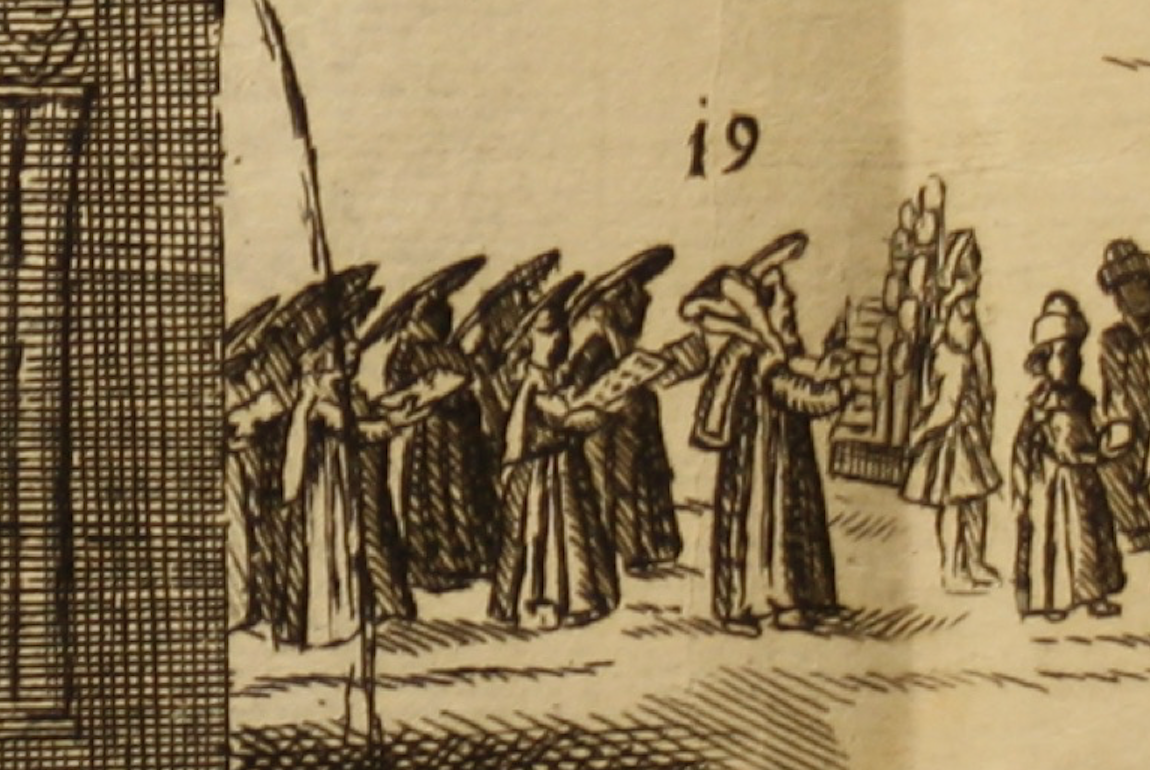
ROSSI IN MORAVIA: CANTORS IN CZECH LANDS (1500-1750), talk by Cantor Matt Austerklein
During the early modern period, Bohemia & Moravia were the site of a dramatic transformation of Ashkenazic cantors into music professionals. Expanding beyond traditional synagogue functions, cantors developed new choristers [meshorerim], sang with instrumental accompaniment, organized in groups for study and musical exchange, and experimented with Western style and musical notation.
Annual Memorial Service for the Czechoslovak Jewish Victims of Nazism (via Zoom)
Czechoslovak Jewish Victims of Nazism
Held via ZOOM
on Sunday, March 10th at 2 pm EST

underStaffed presents: Bohemian Besties, Baroque and Beyond
Come experience the result of two distinct friendships which weave Bohemian music into the fabric of western classical music in a concert presented by a musical ensemble underStaffed. The program begins with the witty Esquisses de Jazz by Czech-Jewish composer Erwin Schulhoff paired with his friend Alban Berg’s stirring work for string orchestra Lyric Suite. After the intermission, the ensemble will travel back in time and play the majestic Ouverture a 7 concertanti by Czech Baroque composer Jan Dismas Zelenka as well as his contemporary Johann Sebastian Bach’s Brandenburg Concerto #3.
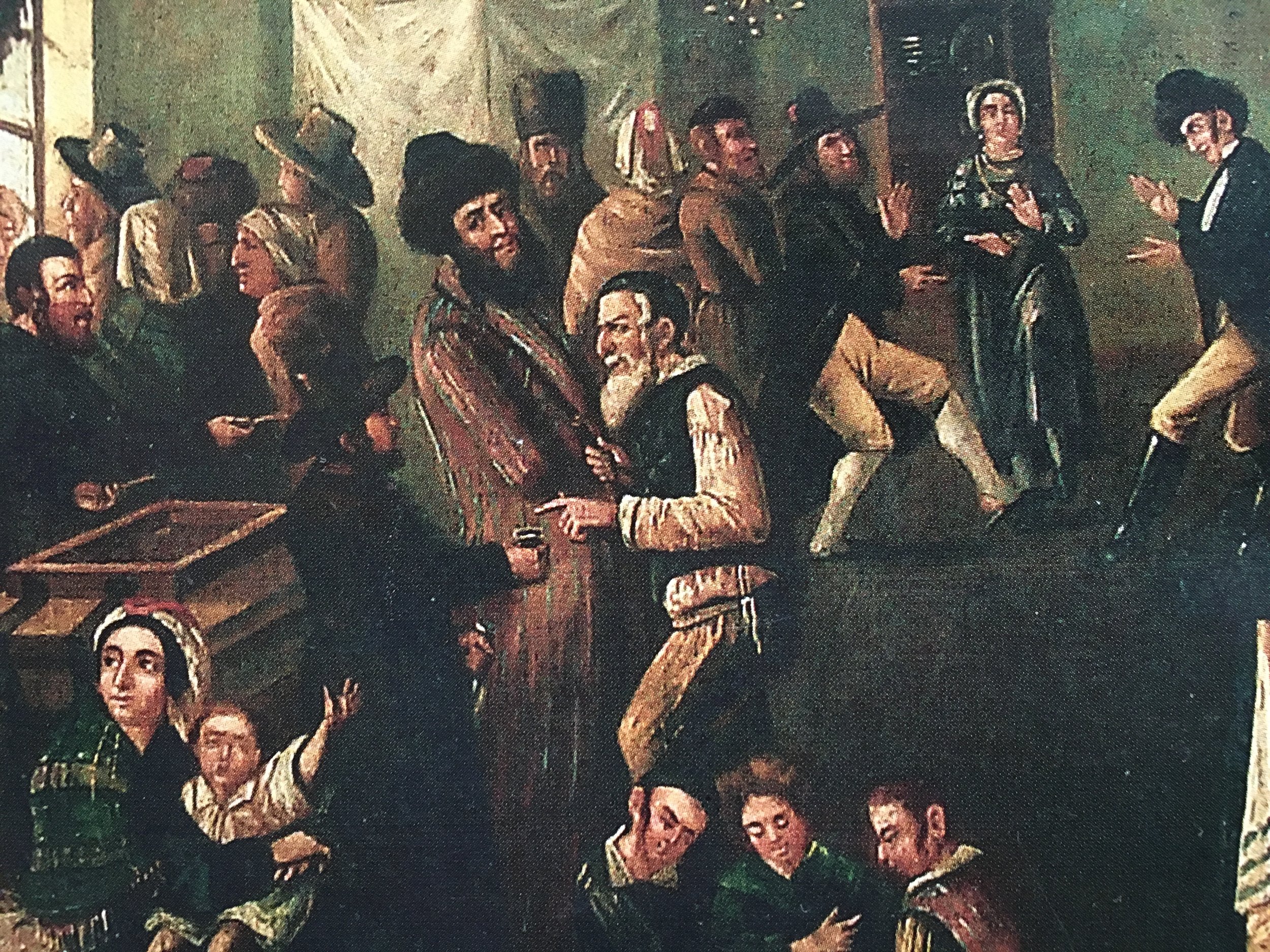
THE KLEMZER GUILD as an Expression of the New Yiddish Culture, talk by Walter Zev Feldman
Beginning in the tenth century, Bohemia/Moravia were the home to the oldest continuous Jewish population in North Eastern Europe. The most recent scholarship describes the use of Judeo-Czech (“Lesohon Knaan”) from this period, and its gradual replacement by what might be termed the Yiddish language, as a fusion of Middle High German, Czech, Romance, and Hebrew-Aramaic.
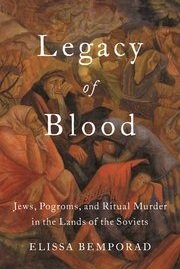
LEGACY OF BLOOD: Jews, Pogroms, and Ritual Murder in the Lands of the Soviets, Talk by Elissa Bemporad
Closely intertwined in history and memory, pogroms and blood libels were and are considered central to the Jewish experience in late Tsarist Russia, the only country on earth with large-scale anti-Jewish violence in the early twentieth century. But their persistence and memory under the Bolsheviks - a chapter that is largely overlooked by the existing scholarship- significantly shaped the Soviet Jewish experience.

SCIENCE, MODERNITY, AND RITUAL MURDER IN CENTRAL EUROPE: The Turn of the Century Trials - Talk by Hillel Kieval
Although the Enlightenment seemed to have brought an end to the widely held belief that Jews murdered Christian children for ritual purposes, charges of the so-called blood libel were surprisingly widespread in Central and Eastern Europe at the turn of the twentieth century. Well over one hundred accusations were made against Jews in this period, and prosecutors and government officials in Germany, Austria-Hungary, and Russia broke with long-established precedent to bring at least six of these cases forward in sensational public trials.

The Story of the Chatam Sofer Dynasty. Film produced by the Radio and Slovak Television
When Chatam Sofer, a native of Frankfurt am Main, arrived in Pressburg (now Bratislava) in the early 19th century, few would have expected him to become one of the most esteemed rabbis. However, he elevated the Rabbinical yeshiva to a global level, which brought pride to the Jewish community in Bratislava as well. He gained great authority among believers, who regarded him as a miraculous Rabbi.
His successors continued his work, and thanks to them, Bratislava became a center of Jewish education for many years. This is the story of a family that has carried on the tradition and spiritual legacy of their famous ancestor, the founder of a renowned rabbinical dynasty.

BLOOD LIBEL: ON THE TRAIL OF AN ANTI-SEMITIC MYTH, Talk by Magda Teter
Blood libel, an anti-Jewish lie, emerged in the Middle Ages but became embedded in European Christian imagination later. The blood libel continues to have relevance today, as contemporary political cartoons and even deadly violence make clear. The talk will explore how a medieval anti-Jewish lie spread across Europe and continues to persist into the twenty-first century even in the US.
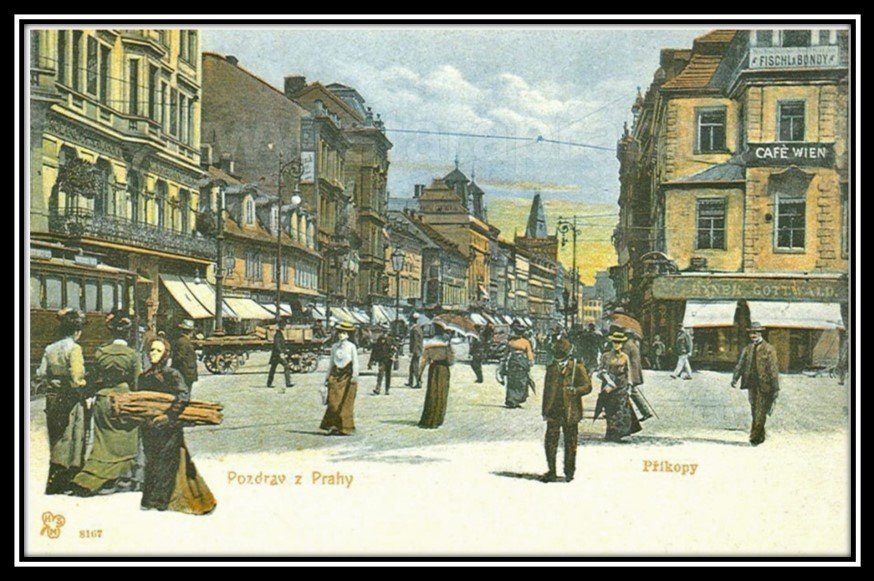
PRAGUE FORAYS: EGON ERWIN KISCH, talk by Professor Chad Bryant
Prague Forays: Egon Erwin Kisch, Political Antisemitism, and Walking-as-Belonging before World War I.
Egon Erwin Kisch, a celebrated member of the Prague Circle, first earned local fame while writing a newspaper column entitled Prager Streifzüge, or Prague Forays, published weekly from 1910 to 1911. In these literal and figurative forays, Bryant argues, Kisch puzzled through notions of urban belonging in a city ruled by Czech elites and shot through with political antisemitism. Kisch’s literary experimentations, furthermore, suggested ways of thinking about strangers and difference, place and community, in the fin-de-siècle city more broadly.
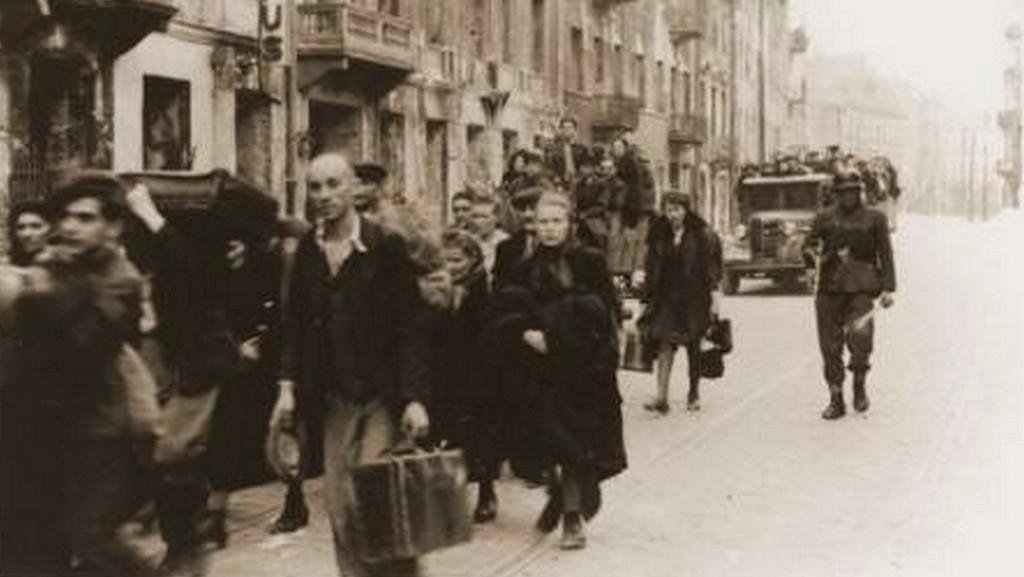
THE STEINER BOOKSTORE, Stage Reading, Playwright: Ľuba Lesná, Director: Alexandra Aron. Translated by: Julia and Peter Sherwood.
As a part of its annual Rehearsal for Truth Theater Festival honoring Vaclav Havel, the Vaclav Havel Library Foundation presents a reading of the play The Steiner Bookstore.
The play is based on true historical facts and on the novel of the same name by Ľuba Lesná, It is the history of the famous Steiner Antiquarian Bookshop in Bratislava, which takes place during the anti-Jewish repressions in the early 1940s in the Nazi Slovak state when the antiquarian bookshop was subject to Aryanization, meaning expropriation. The well-known Slovak writer Ľudo Ondrejov became the owner of the antiquarian bookshop.
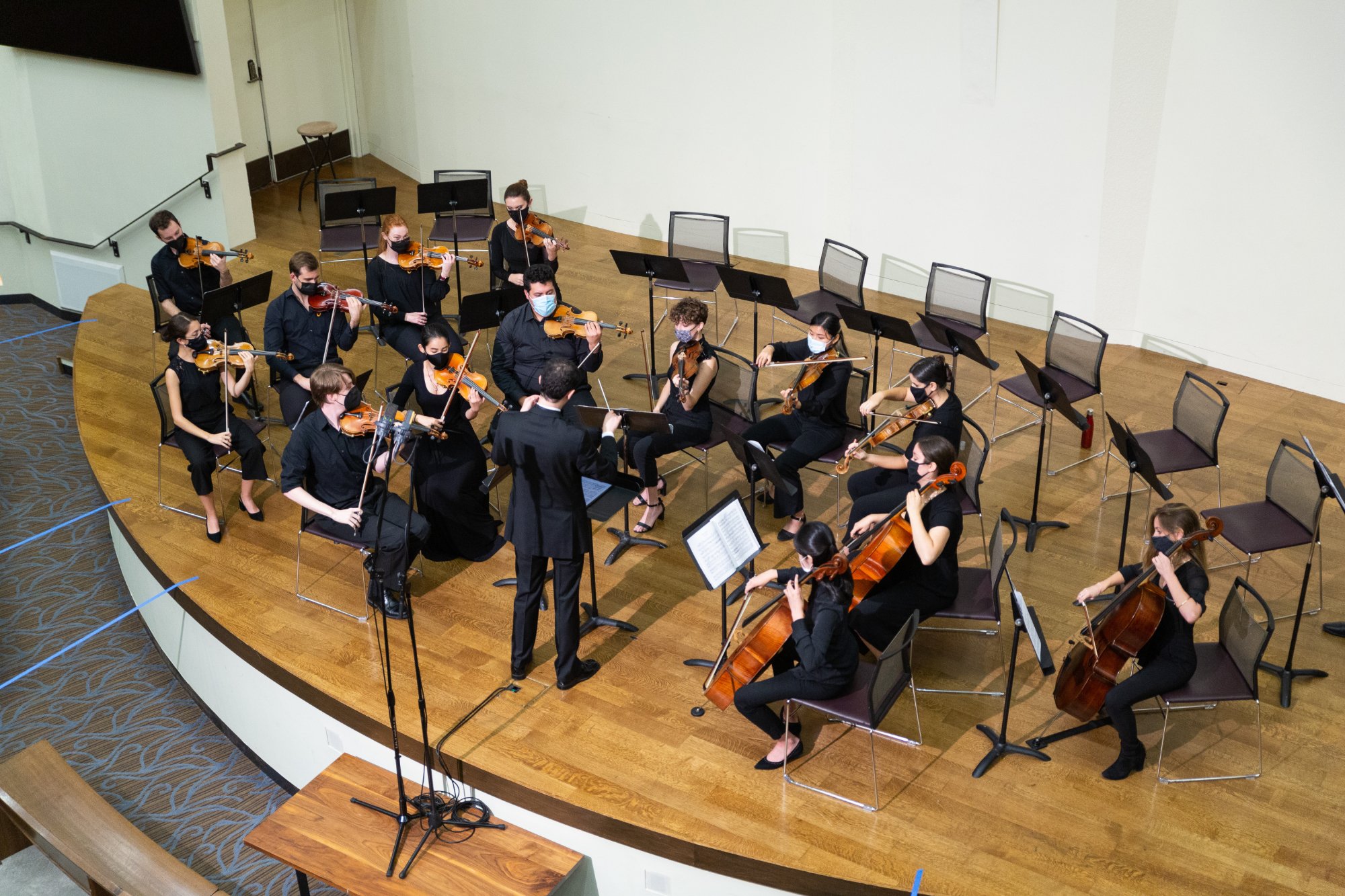
THEN AND NOW, Works for Chamber Orchestra
Experience three centuries of string orchestra repertoire with this special performance by underStaffed, an emerging New York area musical ensemble conducted by Elliot Roman, in partnership with the Society for the History of Czechoslovak Jews and the Bohemian Benevolent and Literary Association.

The ANNUAL MEMORIAL SERVICE FOR THE CZECHOSLOVAK VICTIMS OF NAZISM
The service will be led as during the many past years by Rabbi Norman Patz and Cantor Natasha Hirschhorn. We are honored that Arnošt Kareš, Consul General of the Czech Republic in New York, and Milan Vrbovsky, Consul General of the Slovak Republic in New York, will participate in the Service.
In the Memorial Program, musicians from Manhattan School of Music, from the underStaffed collective, will perform String Trio composed by Gideon Klein in Terezin. Elliot Roman, the conductor and founder of underStaffed will introduce the performers and the composer who perished in the Holocaust.

Bohemia's Jews and Their Nineteenth Century, a talk by Jindřich Toman
The presentation surveys literary and journalistic texts that shed light on relations between Czechs and Jews in Bohemia in the nineteenth century.

Prince of the Press: How One Collector Built History’s Most Enduring and Remarkable Jewish Library, Talk and Book Presentation by Joshua Teplitsky
David Oppenheim (1664–1736), chief rabbi of Prague in the early eighteenth century, built an unparalleled collection of Jewish books, all of which have survived and are housed in the Bodleian Library of Oxford. His remarkable collection testifies to the myriad connections Jews maintained with each other across political borders. Oppenheim’s world reached the great courts of European nobility, and his family ties brought him into networks of power, prestige, and opportunity that extended from Amsterdam to the Ottoman Empire. His impressive library functioned as a unique source of personal authority that gained him fame throughout Jewish society and beyond. His story brings together culture, commerce, and politics, all filtered through this extraordinary collection. Based on the careful reconstruction of an archive that is still visited by scholars today, Joshua Teplitsky’s book offers a window into the social life of Jewish books in early modern Europe.

Continuity or Change? Post-war and post-communist perceptions of the Shoah in Slovak literature. Talk by Julia Sherwood.
In this talk, translator and promoter of Slovak literature Julia Sherwood will consider how the Shoah was reflected in the work of Slovak writers in the immediate aftermath of World War II, who had direct experience of, or witnessed, the events, comparing their perception and treatment of the topic with that of authors who came to the fore after the end of communism. The main focus will be on works of fiction, fictionalized biographies and plays for the theater, by a range of writers including Leopold Lahola, Rudolf Jašík, Ladislav Grosman and Alfréd Wetzler, and from the younger generation Silvester Lavrík, Veronika Homolová Tóthová, Viliam Klimáček, Jana Juráňová and Ľuba Lesná. Julia Sherwood will examine the varied ways in which these authors have dealt with the painful legacy of the past within the overall context of postwar, communist Czechoslovakia and present-day Slovakia.
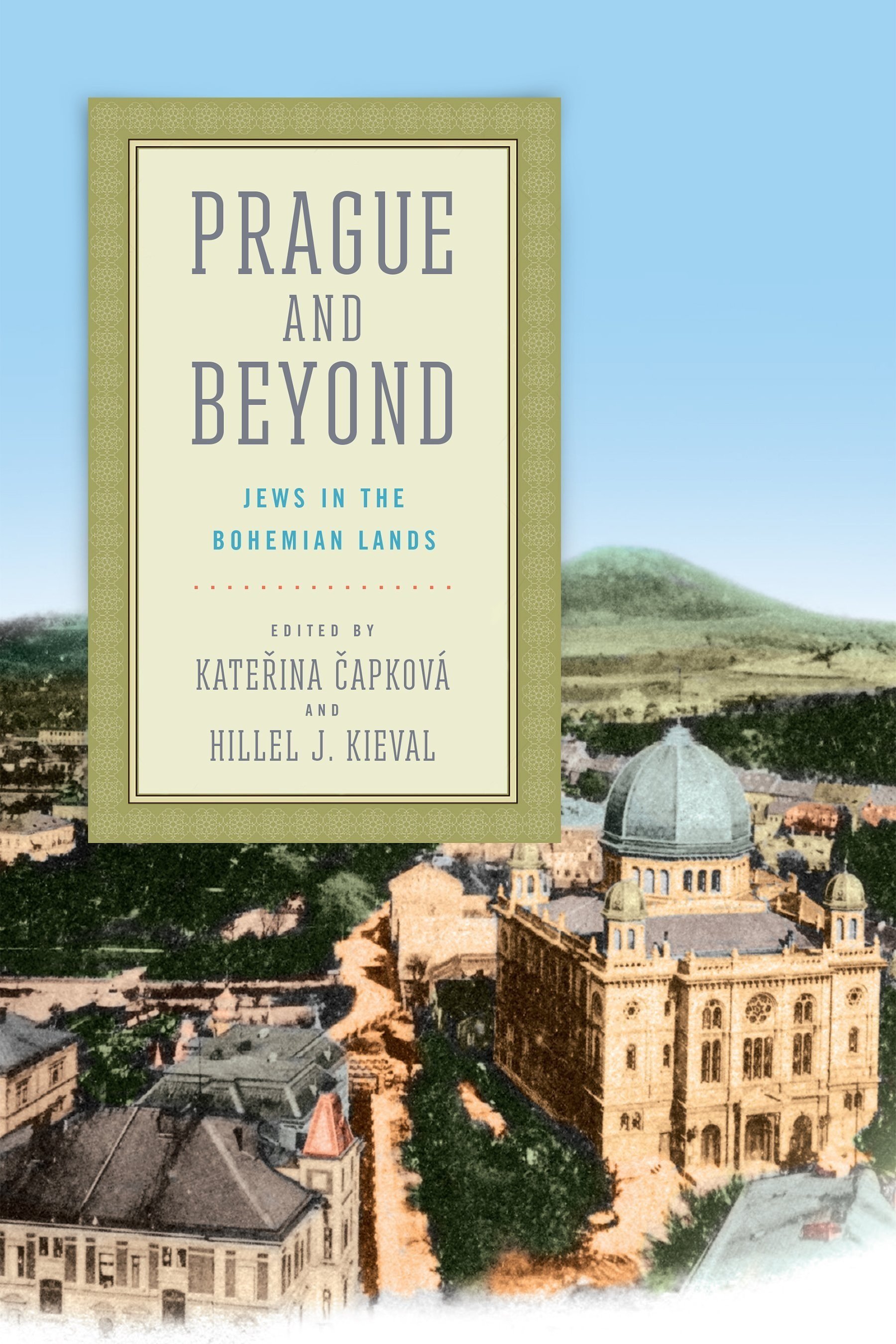
Prague and Beyond - book discussion over the first comprehensive history of Jews in the Bohemian Lands
Prague and Beyond presents a new and accessible history of the Jews of the Bohemian Lands written by an international team of scholars. It offers a multifaceted account of the Jewish people in a region that has been, over the centuries, a part of the Holy Roman Empire and the Habsburg Monarchy, was constituted as the democratic Czechoslovakia in the years following the First World War, became the Nazi Protectorate of Bohemia and Moravia and later a postwar Communist state, and is today's Czech Republic. This ever-changing landscape provides the backdrop for a historical reinterpretation that emphasizes the rootedness of Jews in the Bohemian Lands, the intricate variety of their social, economic, and cultural relationships, their negotiations with state power, the connections that existed among Jewish communities, and the close, if often conflictual, ties between Jews and their non-Jewish neighbors.

The ANNUAL MEMORIAL SERVICE FOR THE CZECHOSLOVAK VICTIMS OF NAZISM
The service will be led as in the many past years, since 1980, by Rabbi Norman Patz. We are honored that Milan Vrbovsky, Consul General of the Slovak Republic in New York and Arnošt Kareš, Consul General of the Czech Republic in New York, will participate in the Service.
In the Memorial Program, Cantor Natasha Hirschhorn will present rarely heard songs by Karel Reiner and Norbert Frýd from the children’s song cycle “Abeceda Květovaného koně (Alphabet of a Flowered Horse)” and from the play “Esther”.

We recommend: “The Jewish Community in Ukraine and the Current Crisis”
Dr. Dovid Fishman will present “The Jewish Community in Ukraine and the Current Crisis”

Issues of Language and Identity in God’s Atoms by Gejza Vámoš -- Talk by Charles Sabatos
The life and work of Gejza Vámoš (1901-56) epitomize the multiculturalism of early twentieth-century Central Europe, and his first novel Atómy boha (God’s Atoms, 1928) offers a distinctly Slovak perspective on interwar Prague..

Franz Kafka: from Prague’s Triple Ghetto to the Merry Ghetto of Czech Underground, Talk by Veronika Tuckerová
The talk will discuss the ways Kafka was perceived in Czechoslovakia from the 1920s to 1989. Kafka’s Prague origin was important to many Czech interpreters and readers, from Kafka’s bilingual contemporary Paul Eisner who promoted the topos of “triple ghetto,” to poets and artists such as Emanuel Frynta, Jan Lukas, and Jiří Kolář, to the 1970s and 1980s dissidents such as Jiřina Šiklová, Václav Havel, and Milan Šimečka, who invoked Kafka in their letters from prison. The talk draws on a book manuscript, Reading Kafka in Prague.

My Seven Lives and More - Talk and Book Presentation: A fascinating story about Agnesa Kalinova, a Slovak-Jewish journalist, film critic and translator.
This Zoom event will introduce Agnesa Kalinova (1924-2014) - a Slovak-Jewish journalist, film critic and translator. Agnesa's fascinating story has been captured in Mojich sedem zivotov, a book-length conversation conducted by the Slovak playwright, writer and social activist Jana Juranova, which was published by the feminist publishing house ASPEKT in 2012. Translated into Czech, German and Hungarian, this captivating narrative will soon be available in English as well.
